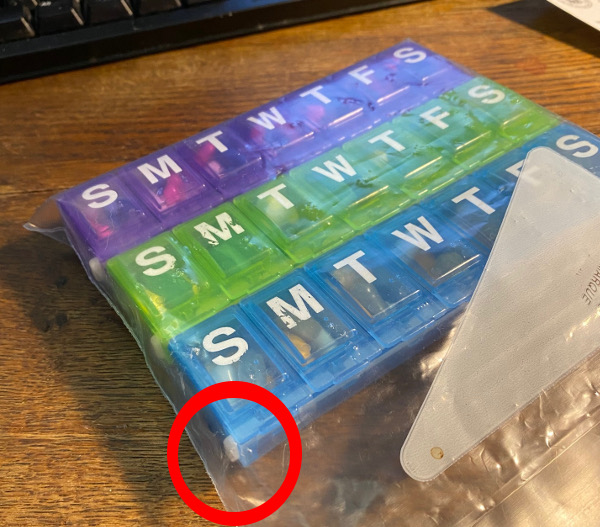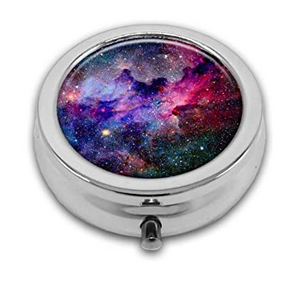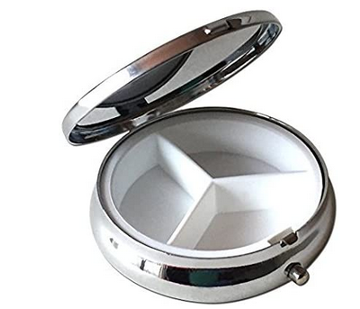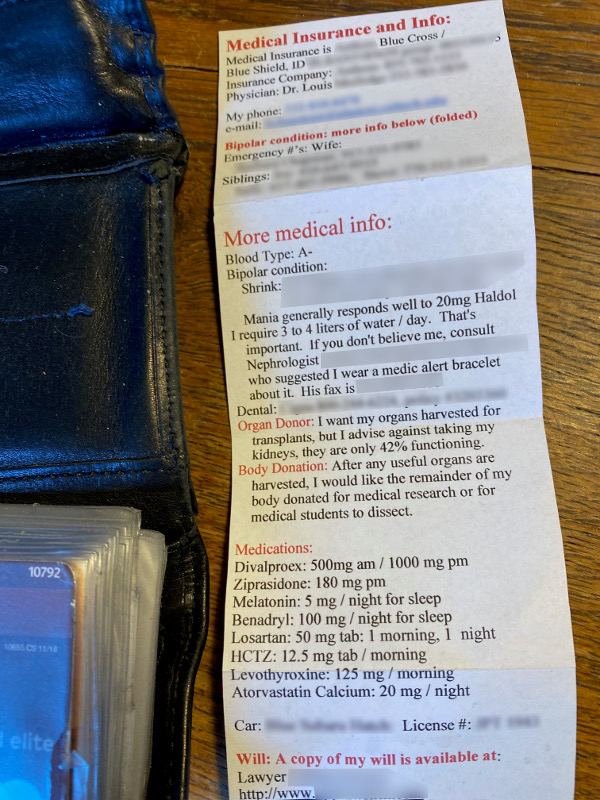| Sometimes the Meds
Work Handy Tips |
 A week's supply of meds.
Note that the trays fit nicely into a one quart Ziploc bag and the white button on the end, circled in red, is an "unlock" button -- these trays lock, which helps avoid them opening by accident, and spilling meds all over your purse or shaving kit. |
Medication is KeyNo one has figured out a way to deal with a serious case of bipolar illness without the patient having to take psych meds for life.
|
VitaminsI felt that since I was getting so organized to take meds, I might as well take vitamins while I'm at it, so I do. However, if you Google "vitamins", most of what you will find is a lot of quack information on the Internet that has no relationship to reality. There's some evidence that taking huge doses of vitamins is bad for you, you should be aiming more at the "Recommended Daily Allowance". Mention whatever vitamins you take to a medical doctor -- an M.D. or a psychiatrist, not a therapist. For example, when I told my kidney doctor that I was taking a gram per day of vitamin C, and he recommended against that, because it's apt to cause kidney stones, so I quit taking it. |
Suicide HotlineIt is a good idea to have a suicide hotline as a speed dial in your cell phone. You never know when you might need it. |
|
Email Author |


